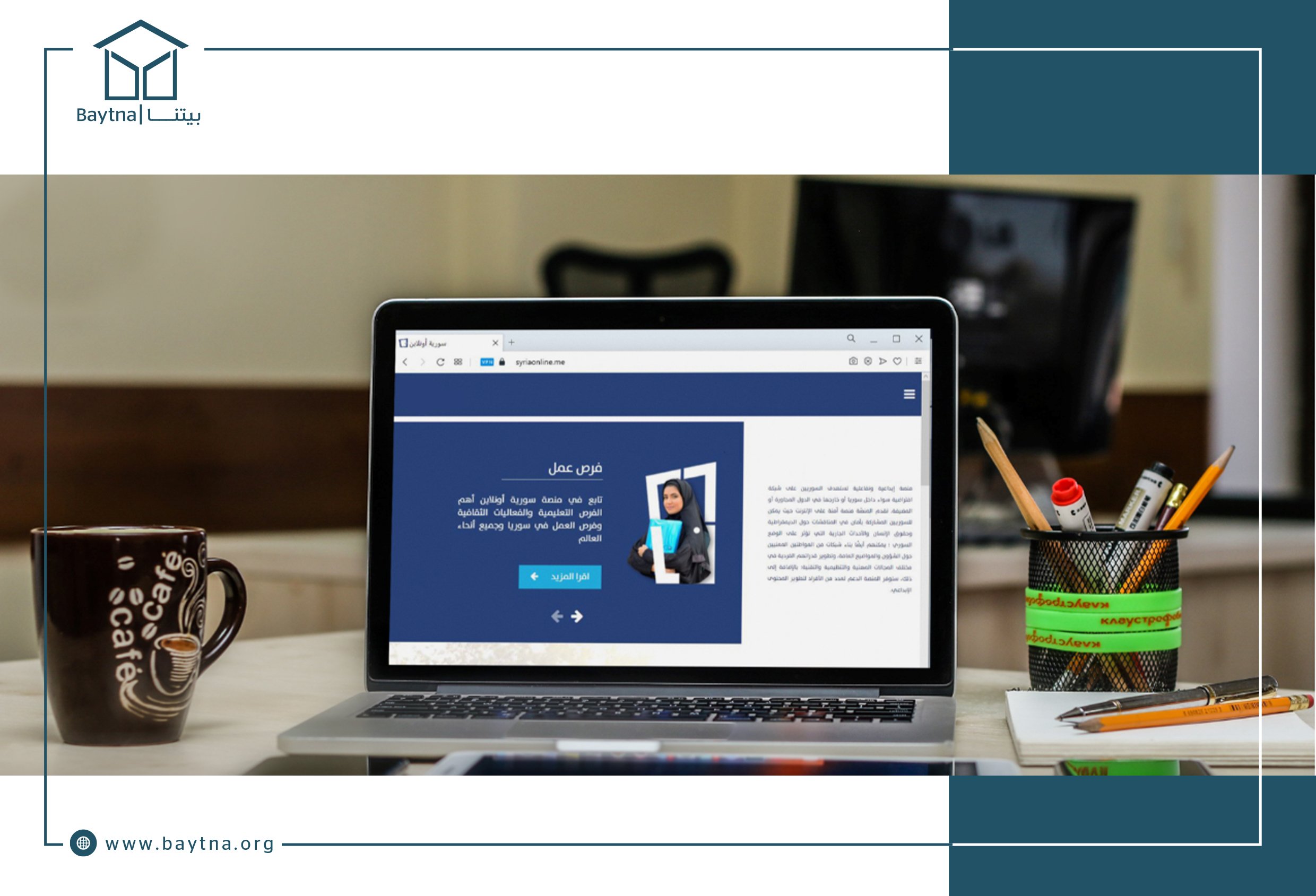A Wealth of Open Resources on Baytna Online
December 3, 2021 - The global online education sector has steadily and organically expanded over the past 20 years, accompanying the rapid developments in technology and the growth of social platforms. Today, much of the education and training that had started as face-to-face in classroom settings has moved online, due to a variety of factors affecting our world, including the COVID pandemic. Online training, also increasing in popularity, has proven it can easily connect numerous knowledge seekers.
Baytna Online’s digital platform was launched in 2016 as the "Musharakah” (meaning sharing) project. Since then, it has been publishing job openings, social events, and educational opportunities available to Syrians in Syria and in various asylum countries worldwide. The platform has also translated into Arabic useful articles published on respected international websites. So far, Baytna Online has published more than 7,500 job openings, over 320 scholarship opportunities, more than 850 events, and nearly 1,000 translated articles. This unique and varied content is now reaching more than 1.5 million users worldwide every month.
For its program manager, Jihad Masri, the platform offers Syrian civil society a unique experience, raising the level of skills and knowledge in various fields. “It helps to communicate between institutions that provide job opportunities and individuals looking for work suited to their abilities and expertise. It also includes content that raises awareness on many social issues," he says.
In 2019, Baytna Online added training courses, prepared and produced in the platform's studio in cooperation with renowned trainers and experts in various fields; the subjects covered include self-development, communication, marketing, risk management, scholarships, citizenship, and management. More than 1,600 people have already taken these online courses, and many more are signing up for upcoming subjects.
Interview with trainer Firas Hamdouni
Baytna carefully selects trainers through announcements on its social media platforms, forming a committee of specialists in the relevant fields to evaluate the trainers according to their experience. Upon selection, trainers write the script for the course, which is reviewed by Baytna before filming and production. The uploaded courses are then accessible to all.
The importance of online education and virtual learning is growing. Firas Hamdouni, one of Baytna Online’s trusted trainers, believes this is especially relevant in the current Syrian context. With a Master's Degree in financial management and over ten years of experience with international organizations and the United Nations, he is a specialist in technical fields and covers a number of business subjects, such as financial management, grant management, program management, risk management, and compliance.
His two trainings for Baytna, covering various aspects of on risk management, have so far been taken by close to 600 people. "Risk management is an essential and complementary science necessary for civil society organizations and humanitarian work. It is a safety valve through which you can study potential risks that could affect implementation, and prepare scenarios for what could happen, considering everything expected to maintain performance safety," he explains.
Previously more accustomed to in person training, Firas now believes that the video method presents great benefits: “Yes, this type of training is complex, as it lacks interaction with the trainees, but it gives enough flexibility for trainees to take it at different times that suit them, or to attend the training several times."
This flexibility has in fact encouraged interaction between trainers and participants, with the latter separately asking the trainer many questions on special projects they were about to start, or technical questions they had about their civil society organizations and humanitarian work.
Firas encourages job applicants working in civil society organizations and humanitarian work to take advantage of this type of online training, stressing that unlike many other platforms, Baytna Online’s training courses were free and always available.
“It's a win-win case,” he says. "In fact, these activities contribute to the achievement of the international goals of the United Nations, by building the capacities of those working in civil society. I advise young women and men to attend these trainings, and civil society organizations to conduct more extensive advocacy campaigns for similar trainings."
For more information on Baytna Online courses, and to access the rich and varied content that is continuously updated, please visit the platform here https://baytna.online/ and register to benefit from the numerous courses now available.



